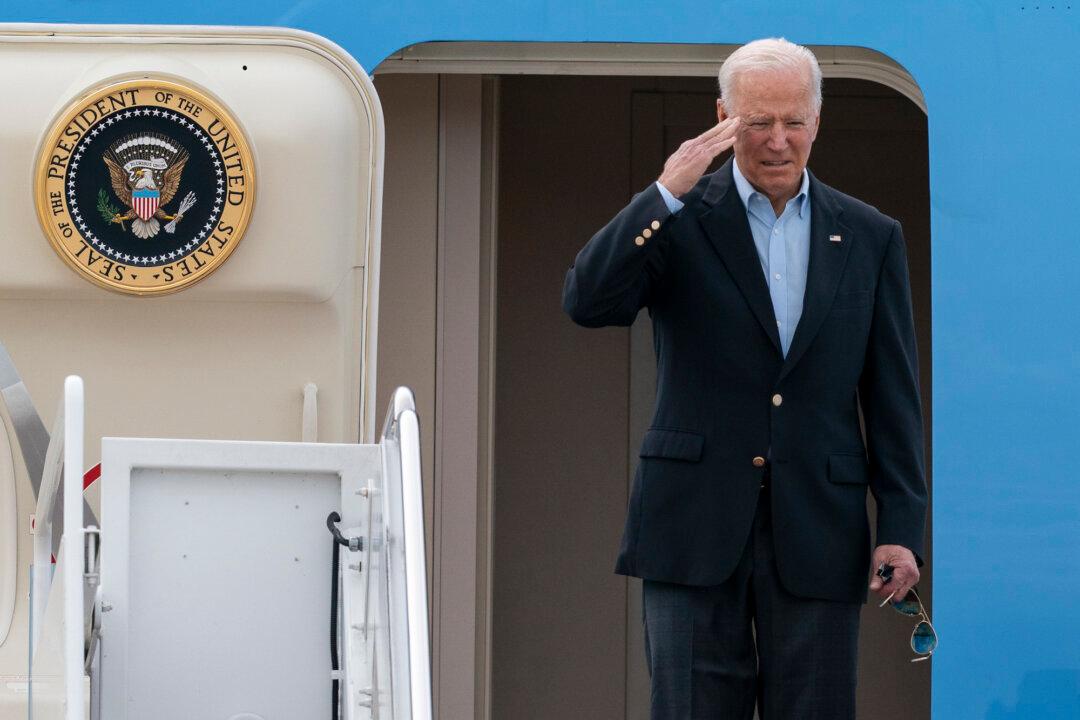President Joe Biden on Wednesday set off on his first foreign trip since taking office, aiming to strengthen ties with European allies and vowing to project that strength to strategic rivals China and Russia.
Prior to boarding Air Force One, Biden told reporters at Joint Base Andrews that his goal will be “strengthening the alliance, making it clear to Putin and China that Europe and the United States are tight.”





